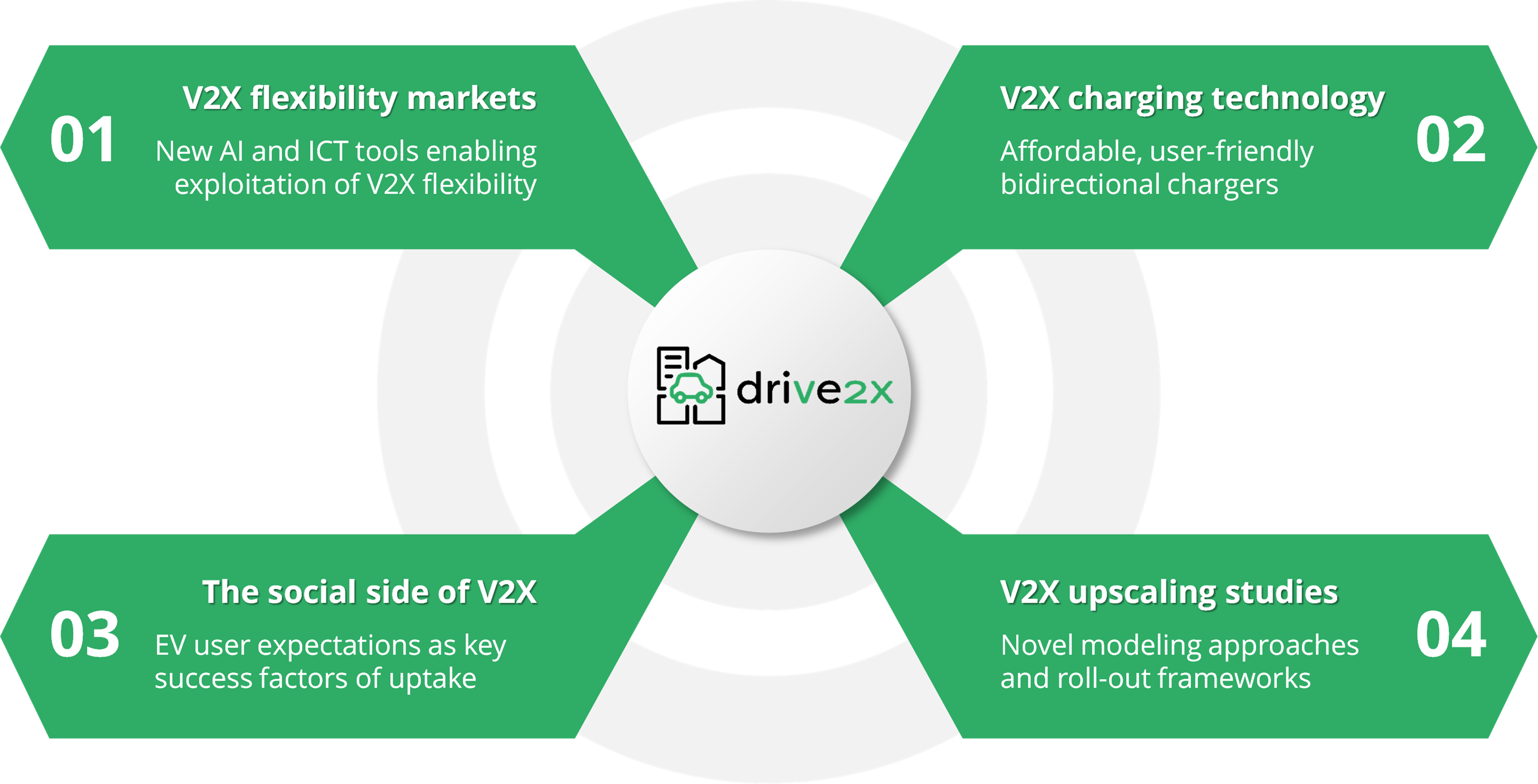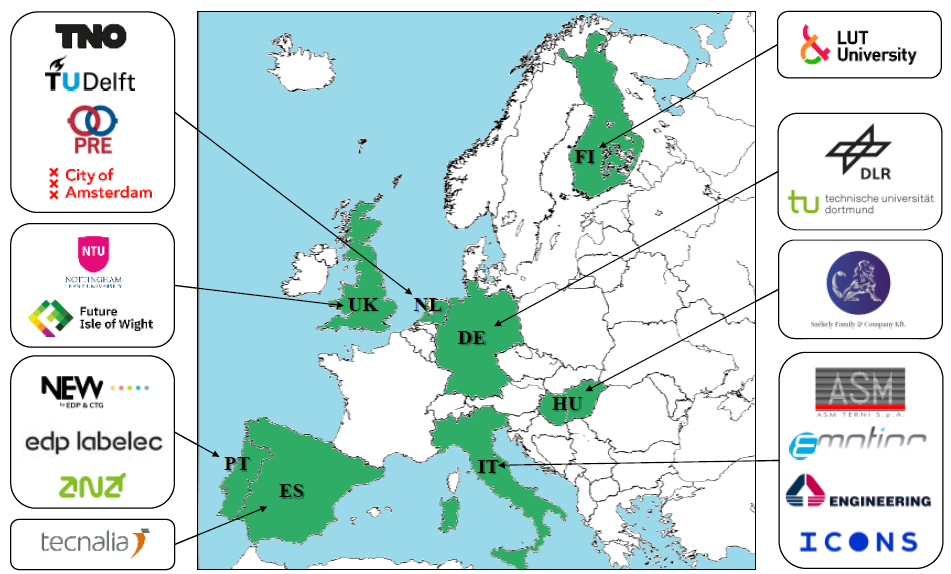DRIVE2X
Delivering Renewal and Innovation to mass Vehicle Electrification enabled by V2X technologies
Overview

By 2050, there will be over 1 billion Electric Vehicles (EVs) on the road, paving the way for a RES-based future. However, smart charging technologies are technically inadequate, expensive, and not user-friendly. DriVe2X will develop digital tools, market solutions, and bidirectional charging (V2X) technologies suitable to the mass deployment of EVs in Europe, while focusing also on designing policy support tools.
Project description
This multidisciplinary four-year project aims to establish a solid scientific base and stakeholder awareness for mass deployment V2X solutions. DriVe2X will develop new knowledge, tools, models, and technologies to cope with a V2X-based mass EV deployment in future. It will study and consolidate the understanding on the behavioural uncertainties linked to V2X and develop policy tools to support increasingly complex decisions on V2X roll-out in European smart cities. DriVe2X will implement advanced artificial intelligence techniques that efficiently capture the flexible energy potential from smart charging in building parking lots, homes, and charging stations, and match it with the distribution network’s localized needs in order to research dynamic marketplaces for exchanging and trading V2X flexibility locally. DriVe2X will develop next-generation slow, lower-cost bidirectional charger units, that will be tested under different use cases in five demonstrators. DriVe2X embraces the EV user’s perceptions and expectations as critical success factors in V2X uptake and upscaling to a mass deployment future. Thus, DriVe2X innovates by inquiring and eliciting the social determinants of V2X, explicitly including it in the development of novel V2X technologies, tools and solutions.
As IEPG, our primary task is to develop scalable and advanced machine learning algorithms and techniques that can efficiently capture the flexible energy potential from every source. By leveraging machine learning models, we aim to match the energy supply with the distribution networks' localized needs. This will play a crucial role in making our electric vehicle ecosystem more sustainable, efficient, and effective.
Intended deliverables
DriVe2X’s overall objective is to contribute to accelerate the uptake of V2X by:
• Deepening the state-of-the-art knowledge on this nascent field.
• Developing new V2X technologies and solutions suitable to mass EV deployment.
• Producing policy tools and insights in support of relevant decision makers.
DriVe2X will advance the state-of-the-art in V2X flexibility markets by establishing novel retailed marketplace, V2X charger technology by making them smarter, more efficient, cheaper and compact, the social side of V2X by providing empirical patterns and V2X upside studies by developing mass-deployment scenarios and roll-out strategies.
Project partners
The DriVe2X consortium is composed of 18 partners from eight countries located in Northern, Central, and Southern Europe.

TUD team

PhD Researcher:
S. (Stavros) Orfanoudakis

Responsible:
Dr. P. (Pedro) P. Vergara Barrios

Responsible:
Dr. S. (Simon) Tindemans

Responsible:
Prof.dr. P. (Peter) Palensky

S. (Stavros) Orfanoudakis
Stavros Orfanoudakis is a Ph.D. researcher in the Intelligent Electrical Power Grids (IEPG) group at TU Delft, since April 2023. Stavros earned his Diploma and M.Sc. in Electrical and Computer Engineering from the Technical University of Crete in Greece. For his Diploma thesis, he developed an autonomous power-trading agent that achieved first place in the international PowerTAC-2020 competition; while during his master's, he proposed an aggregation-enabling framework that seamlessly integrated distributed energy resources into the Smart Grid. Currently, Stavros's research interests focus on developing innovative and scalable Machine Learning algorithms to optimize the charging schedule of Electric Vehicles (EVs) at a city-wide level, as part of his Ph.D. and the DriVe2X project.